Abstract
In what seems to be a response to a paper by Skinner (1987), Mahoney (1989) provides evidence of unfamiliarity with and intellectual intolerance toward radical behaviorism by presenting a critique of it that includes a variety of improper and counterfactual attributions. For example, he argues that radical behaviorism is Cartesian rather than Baconian when the historical record shows the opposite, that it is fundamentally associationist when in fact it is selectionist, and that its philosophy of science is essentially that of operationalism and logical positivism when instead it moved on to other criteria decades ago. The details of Mahoney's history are sometimes flawed and sometimes unsubstantiated, as when he provides a distorted account of the origins of the Association for Behavior Analysis or when he makes undocumented claims about the banning of books. On examination, many of his arguments are couched in stylistic terms that share their rhetorical features with racial, ethnic, and religious stereotyping.
Keywords: Bacon, Chomsky, Darwin, Descartes, Skinner
Full text
PDF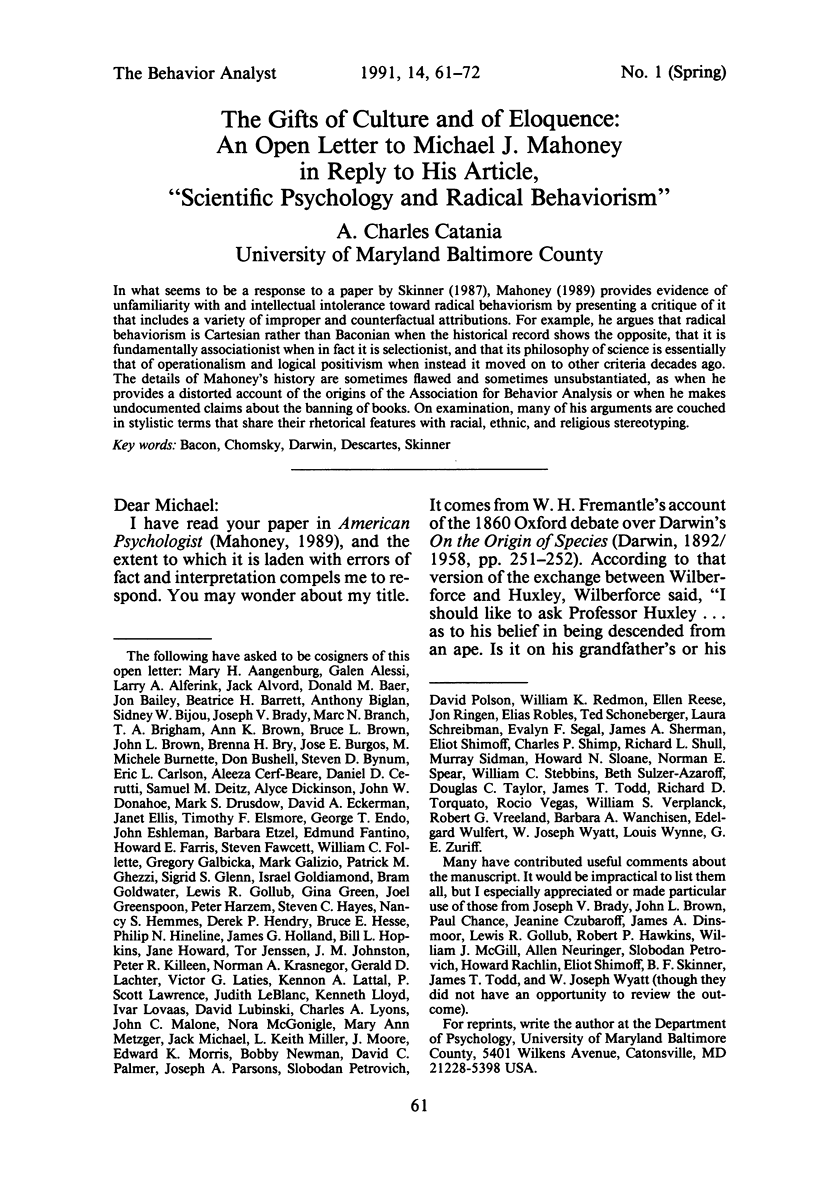
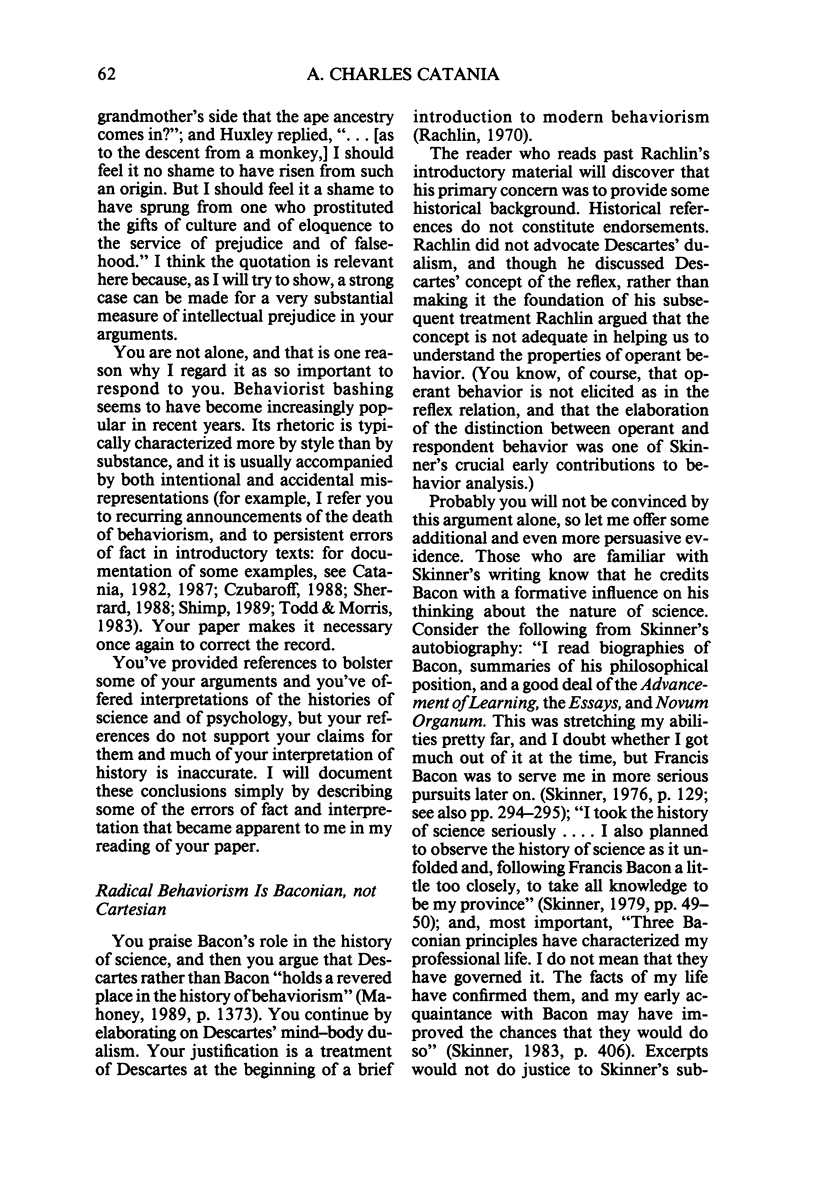
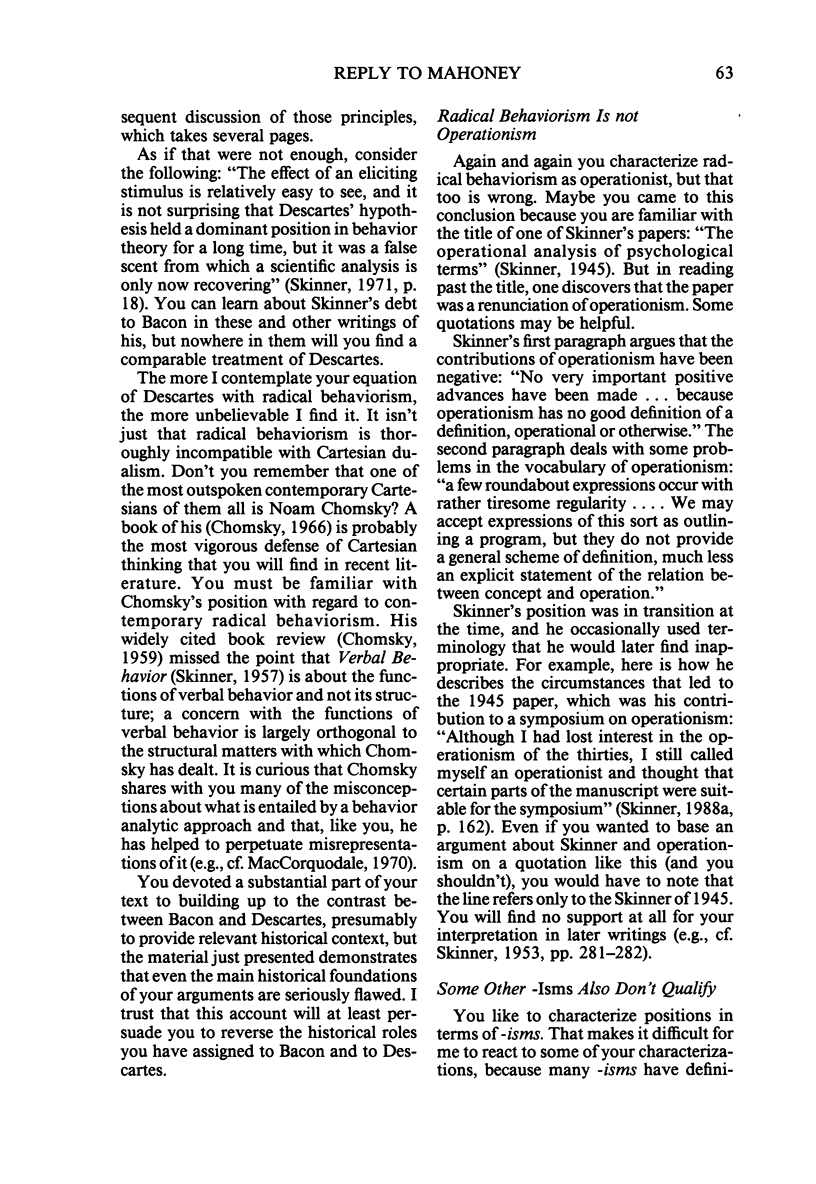
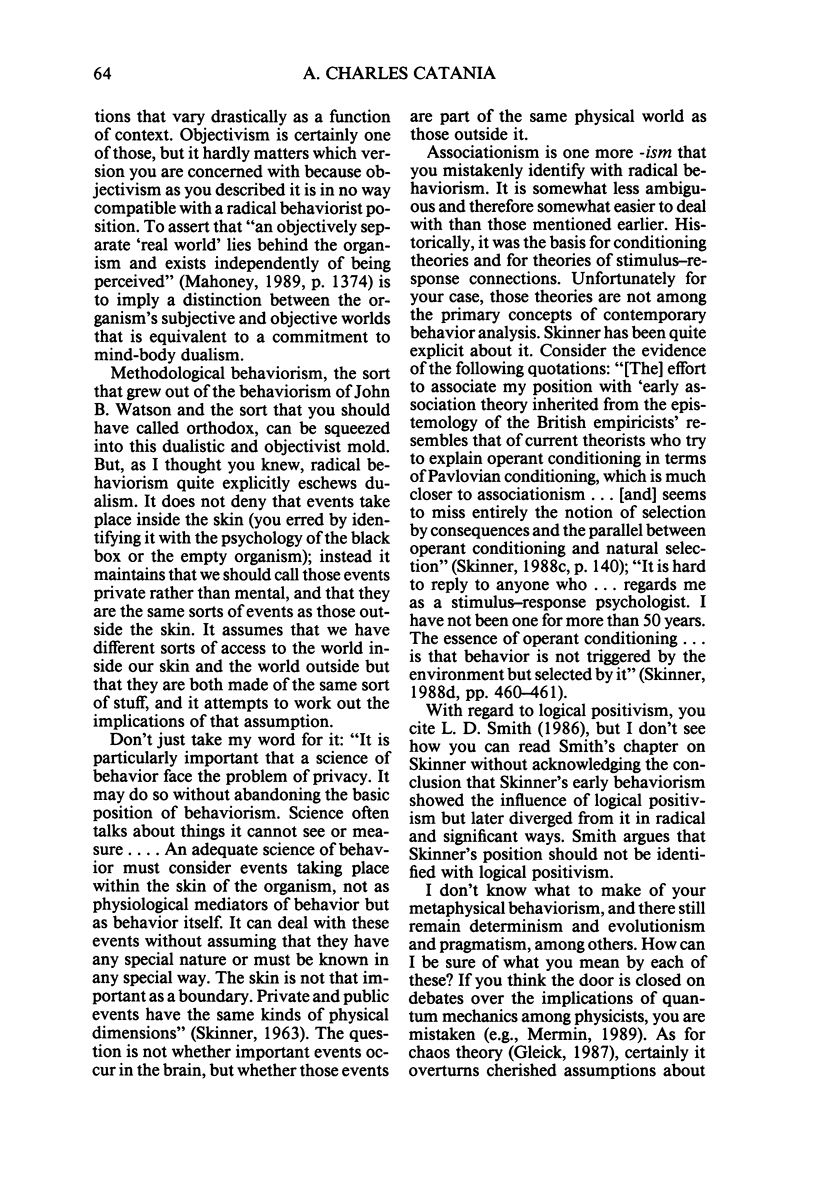
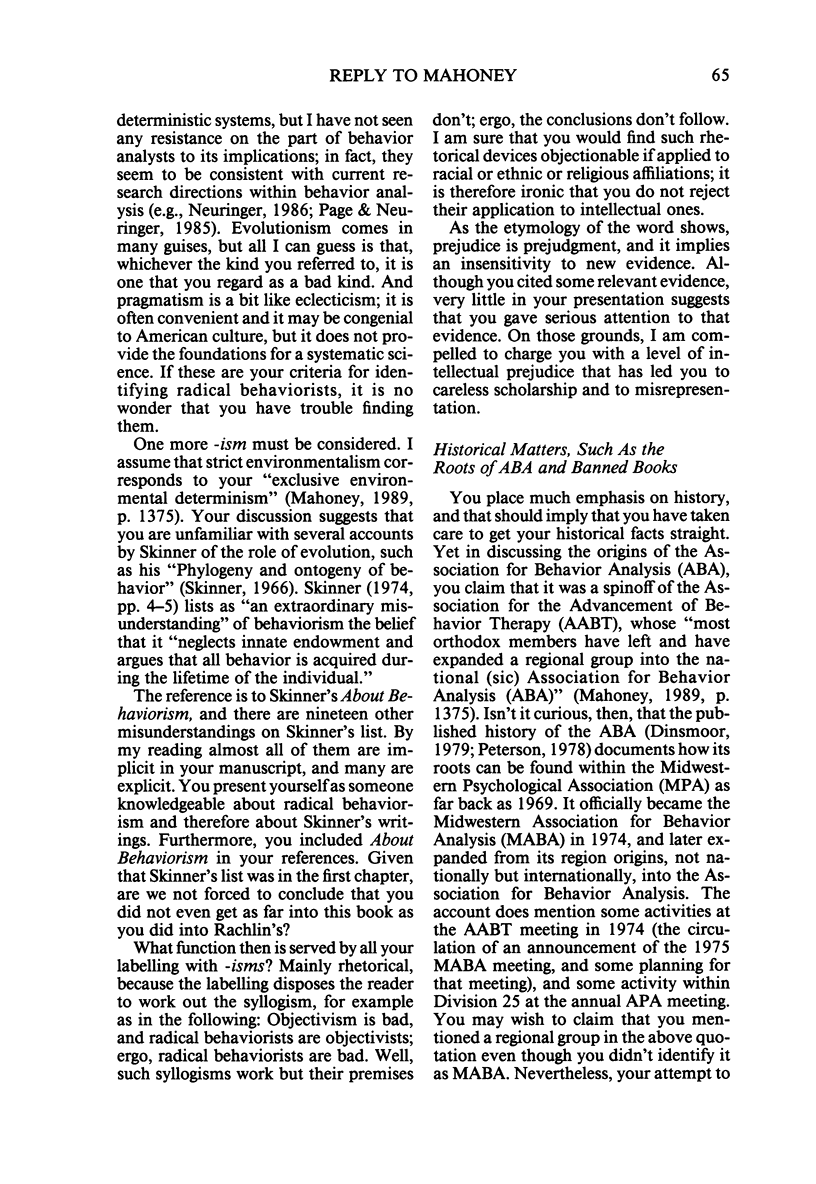
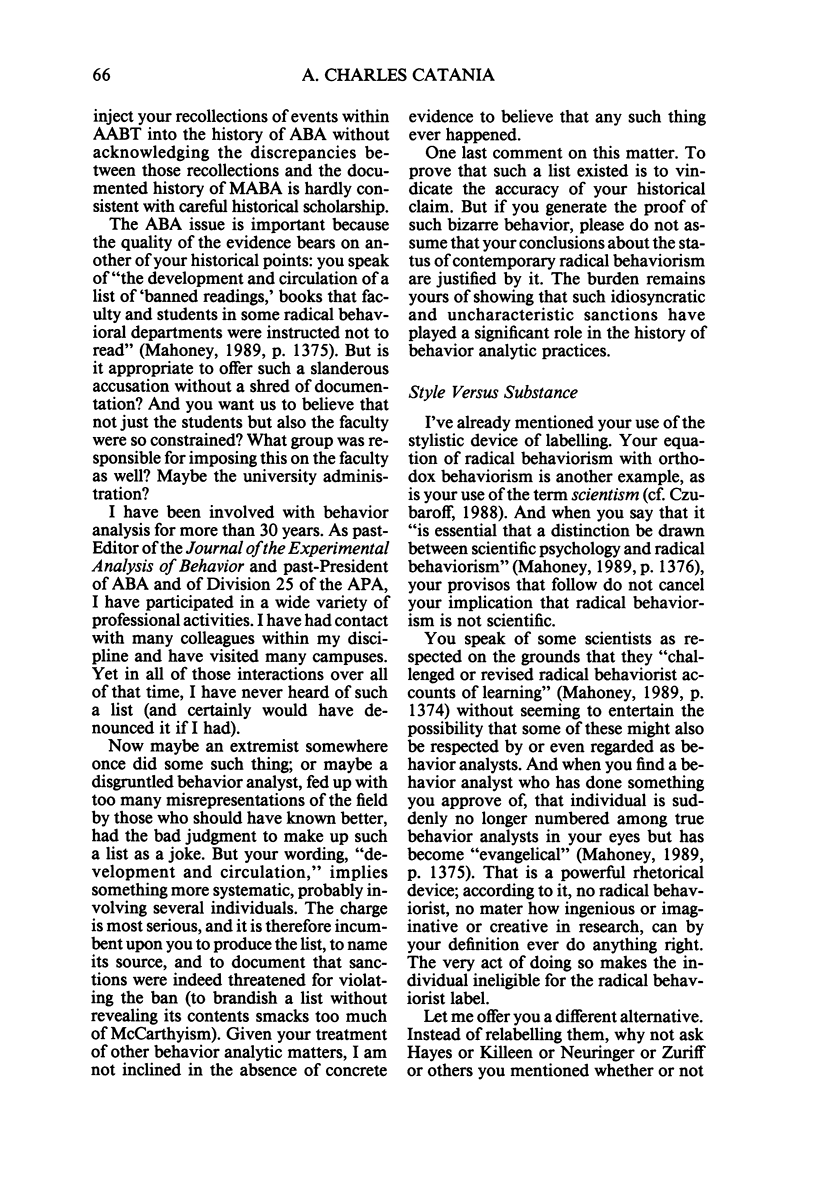
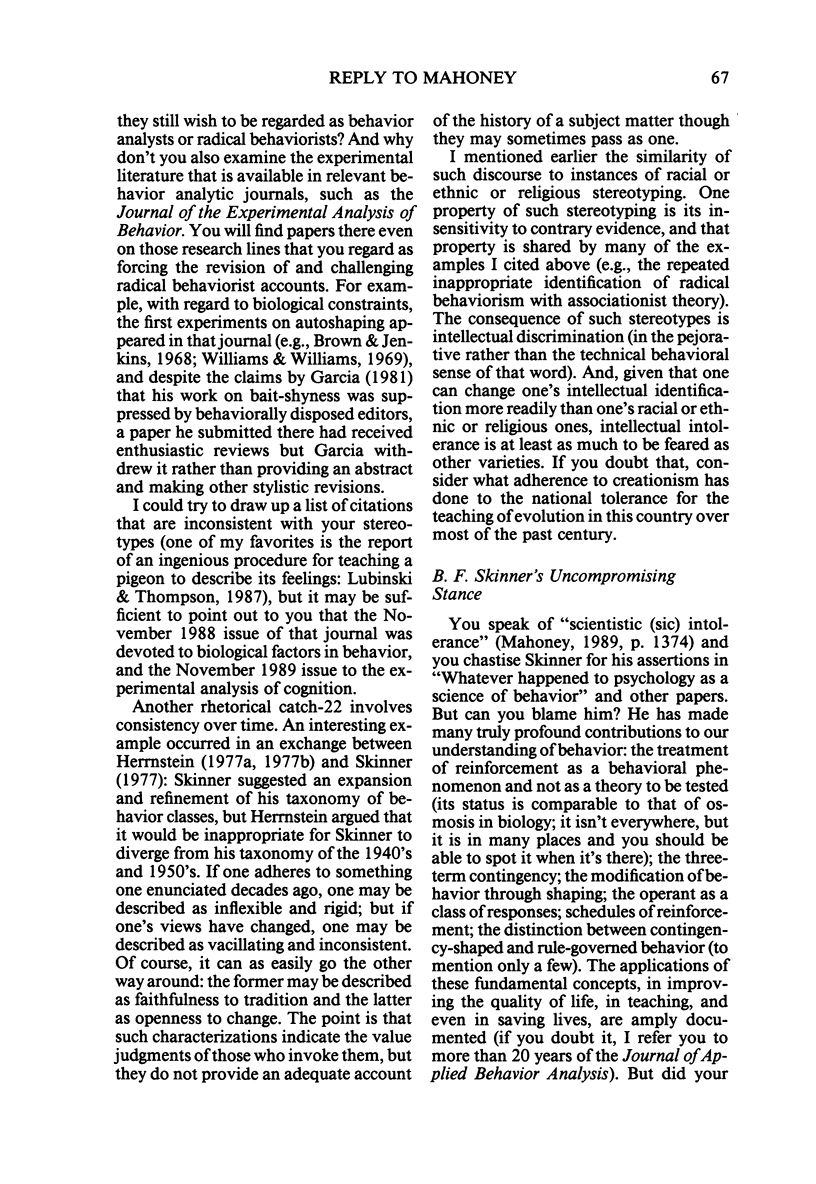
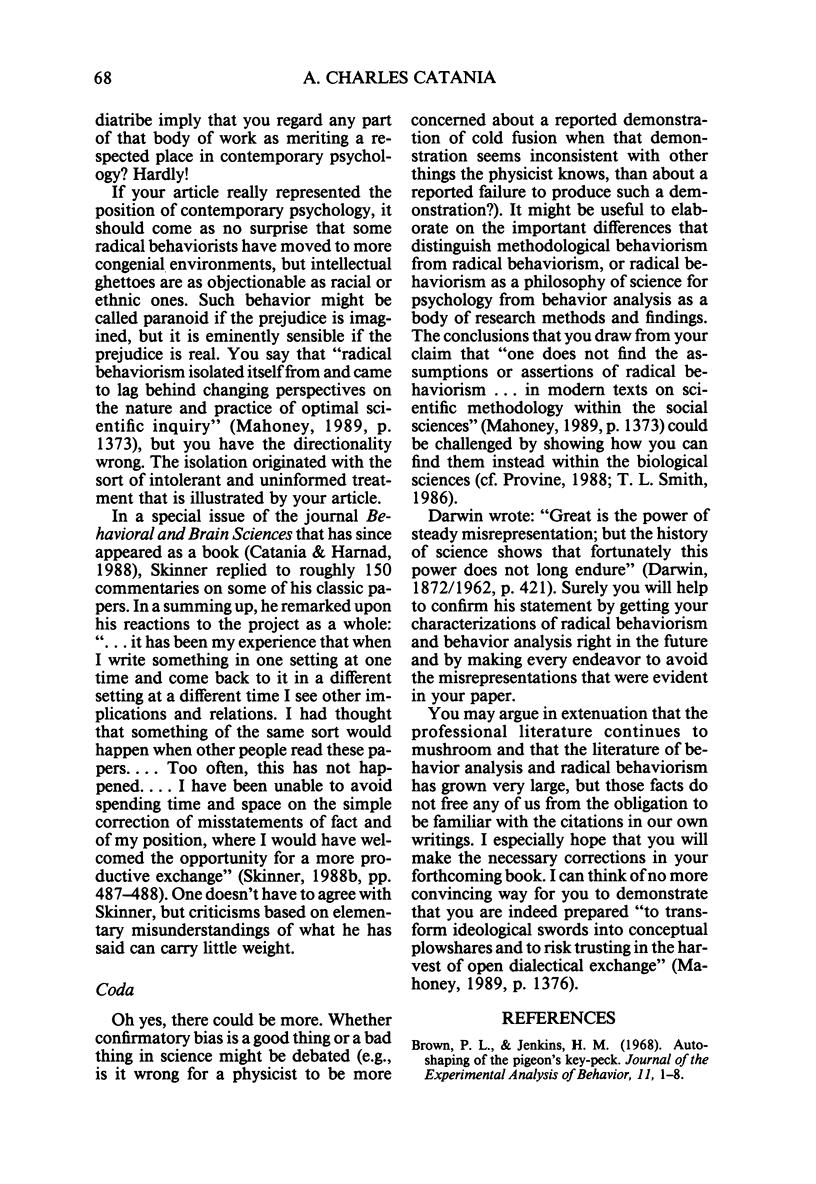
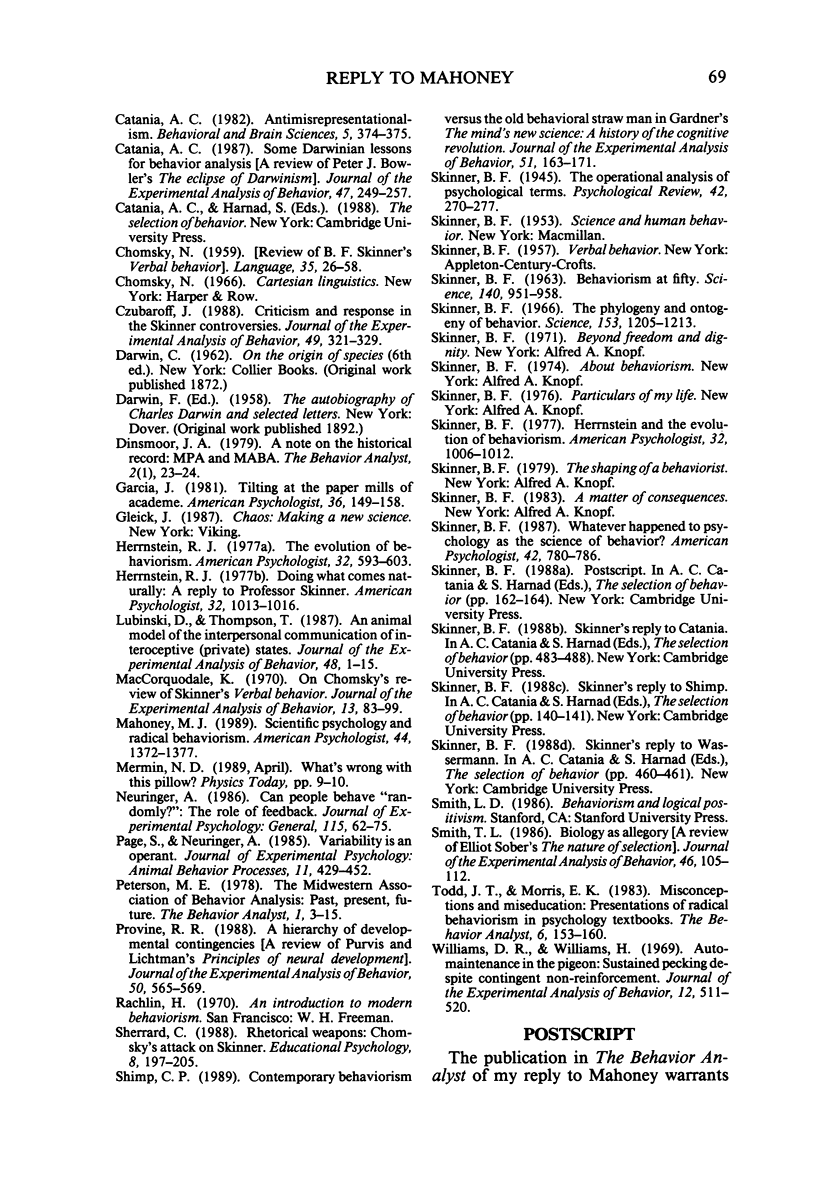
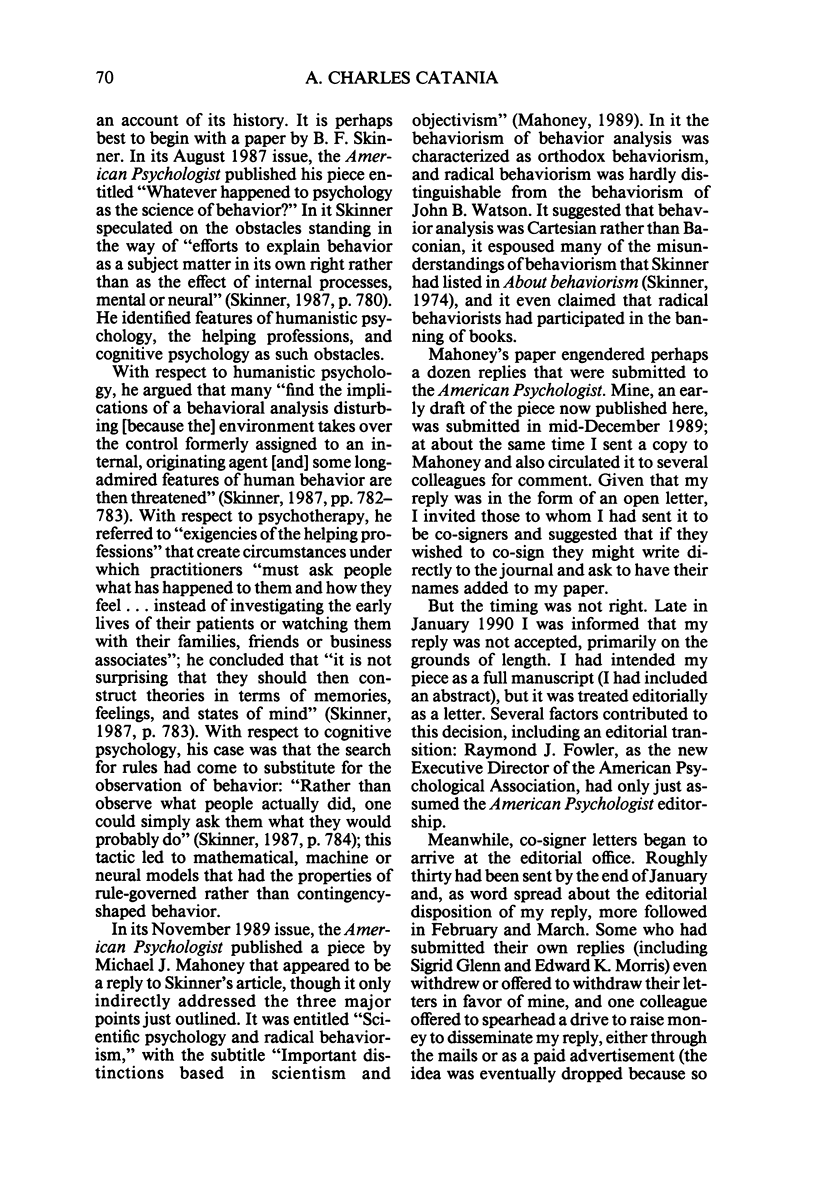
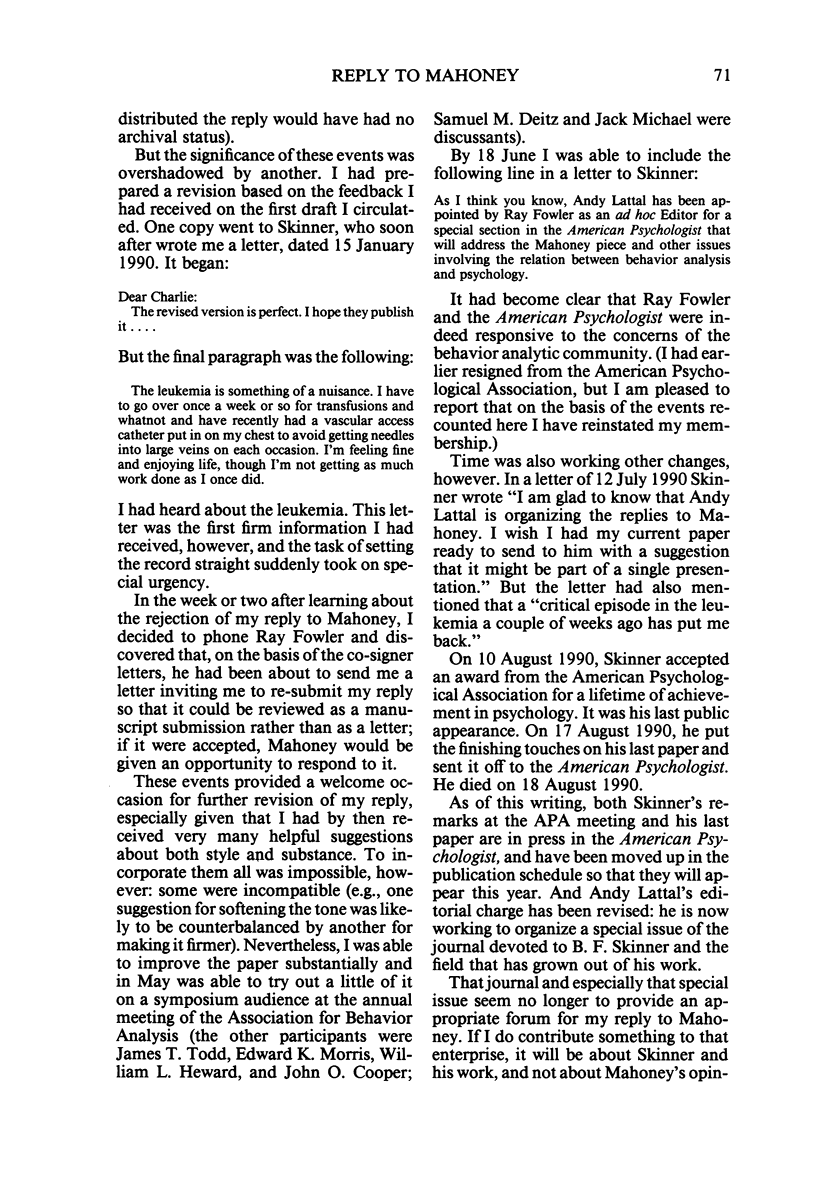
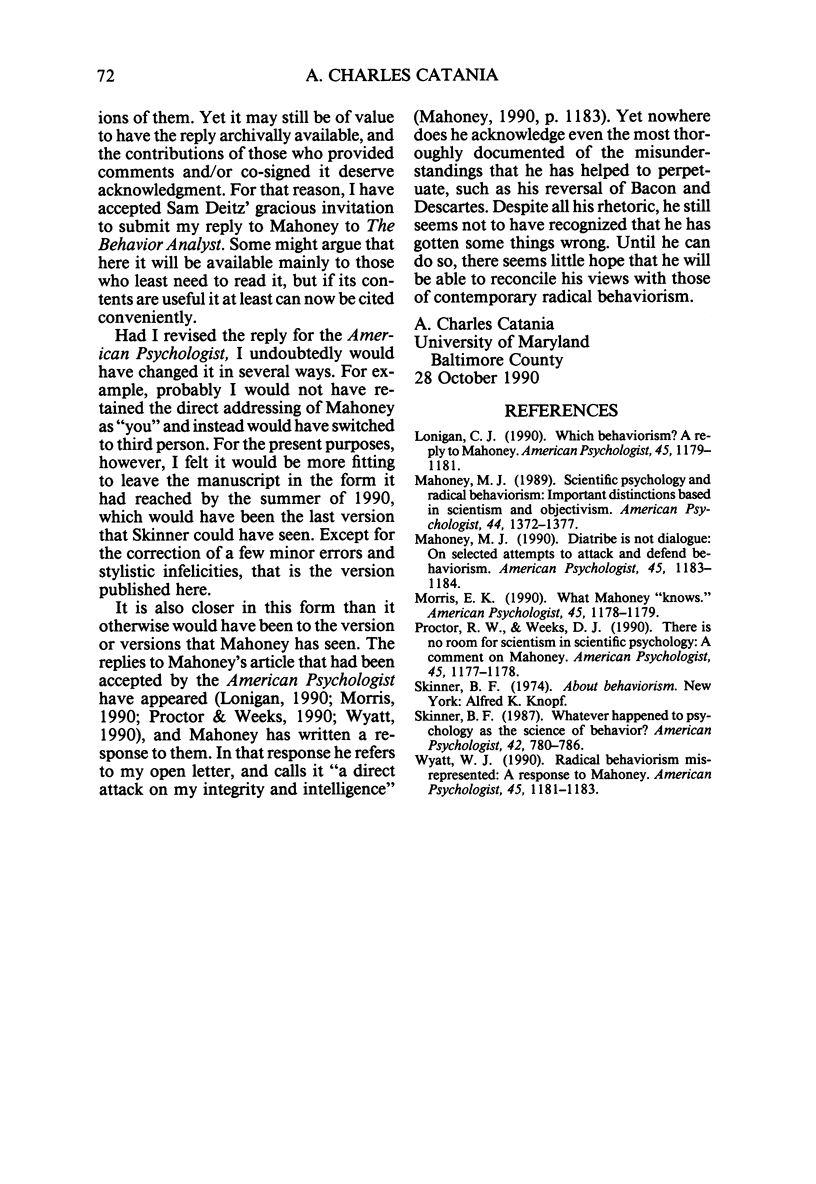
Selected References
These references are in PubMed. This may not be the complete list of references from this article.
- Brown P. L., Jenkins H. M. Auto-shaping of the pigeon's key-peck. J Exp Anal Behav. 1968 Jan;11(1):1–8. doi: 10.1901/jeab.1968.11-1. [DOI] [PMC free article] [PubMed] [Google Scholar]
- Czubaroff J. Criticism and response in the Skinner controversies. J Exp Anal Behav. 1988 Mar;49(2):321–329. doi: 10.1901/jeab.1988.49-321. [DOI] [PMC free article] [PubMed] [Google Scholar]
- Dinsmoor J. A. A note on the historical record: MPA and MABA. Behav Anal. 1979 Spring;2(1):22–24. doi: 10.1007/BF03391831. [DOI] [PMC free article] [PubMed] [Google Scholar]
- Lubinski D., Thompson T. An animal model of the interpersonal communication of interoceptive (private) states. J Exp Anal Behav. 1987 Jul;48(1):1–15. doi: 10.1901/jeab.1987.48-1. [DOI] [PMC free article] [PubMed] [Google Scholar]
- doi: 10.1901/jeab.1970.13-83. [DOI] [PMC free article] [Google Scholar]
- doi: 10.1901/jeab.1989.51-163. [DOI] [PMC free article] [Google Scholar]
- doi: 10.1901/jeab.1988.50-565. [DOI] [PMC free article] [Google Scholar]
- doi: 10.1901/jeab.1986.46-105. [DOI] [PMC free article] [Google Scholar]
- doi: 10.1901/jeab.1987.47-249. [DOI] [PMC free article] [Google Scholar]
- Peterson M. E. The midwestern association of behavior analysis: Past, present, future. Behav Anal. 1978 Spring;1(1):3–15. doi: 10.1007/BF03392368. [DOI] [PMC free article] [PubMed] [Google Scholar]
- SKINNER B. F. Behaviorism at fifty. Science. 1963 May 31;140(3570):951–958. doi: 10.1126/science.140.3570.951. [DOI] [PubMed] [Google Scholar]
- Skinner B. F. The phylogeny and ontogeny of behavior. Contingencies of reinforcement throw light on contingencies of survival in the evolution of behavior. Science. 1966 Sep 9;153(3741):1205–1213. doi: 10.1126/science.153.3741.1205. [DOI] [PubMed] [Google Scholar]
- Todd J. T., Morris E. K. Misconception and miseducation: Presentations of radical behaviorism in psychology textbooks. Behav Anal. 1983 Fall;6(2):153–160. doi: 10.1007/BF03392394. [DOI] [PMC free article] [PubMed] [Google Scholar]
- Williams D. R., Williams H. Auto-maintenance in the pigeon: sustained pecking despite contingent non-reinforcement. J Exp Anal Behav. 1969 Jul;12(4):511–520. doi: 10.1901/jeab.1969.12-511. [DOI] [PMC free article] [PubMed] [Google Scholar]


